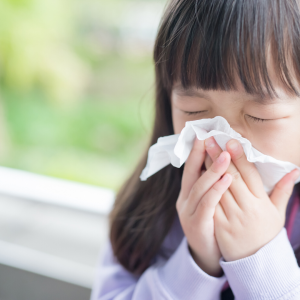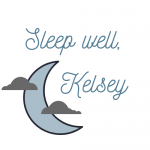
I just recently got back from a trip back east. My kids are still on east coast time, but no rest for mama! Despite my best efforts, I’ve definitely been getting less sleep than I should be. So it’s no surprise that today my throat started getting scratchy!
According to research published by the Sleep Research Society, SLEEP , we know that shorter sleep duration measured prior to viral exposure is associated with greater susceptibility to the common cold.
Sleep duration and sleep continuity were measured over 7 consecutive days. Participants were then quarantined and administered nasal drops containing the rhinovirus, and monitored over 5 days for the development of a clinical cold (defined by infection in the presence of objective signs of illness).
In adults, short sleep duration less than 6 hours were at greater risk than those sleeping 7 hours or more. To date, there have not been studies similar to this in pediatrics. Pretty unlikely there will be any prospective studies published real soon because I don’t know too many parents that would say “sure you can give me kid a cold”. That being said, a full night’s sleep for adults is recommended by national sleep foundation to be 7-9 hours, therefore we should follow the age normals for children in order to keep them healthy. I’ve attached the normal ranges for ages below.

So while handwashing will always be important for the prevention of the common cold we now know that a prescription for adequate sleep is just what the doctor, or nurse practitioner 🙂 , ordered.

Reference: Prather AA, Janicki-Deverts D, Hall MH, Cohen S. Behaviorally assessed sleep and susceptibility to the common cold. SLEEP 2015;38(9):1353–1359.

